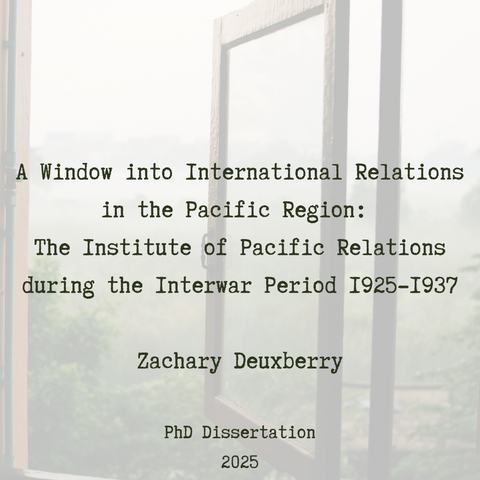Doctoral program
The Tri-University doctoral program is committed to the pursuit of excellence in graduate research and teaching.
The PhD field preparations provide a wide intellectual basis for scholarship and teaching and allow reading complementary to a student's proposed area of doctoral research. Field seminar discussions are intended to develop skills in critical analysis and historical synthesis. Through the process of completing required research papers and a doctoral dissertation, students acquire the capacity to conduct independent research and to produce written work of a sufficient standard to be acceptable for scholarly publication.
Program sequence
The Tri-University doctoral program is designed to be completed in 4 years of full-time study.
| Semester/Year | First year | Second year | Third year | Fourth year |
|---|---|---|---|---|
| Fall |
|
|
|
|
| Winter |
|
|
|
|
| Spring |
|
|
|
|
Program Requirements
The following is an overview only. Visit institution websites for comprehensive degree requirements (see links below). You may also find other relevant information on each university history page.
Fields
Students are required to demonstrate competency in one major field and two minor fields.
The major field is the student's primary area of concentration. The major field involves a reading list of the equivalent of 100 books, approximately half of which will be read by the major field seminar and half by students independently. The minor areas represent secondary areas of concentration. In the minor fields, students must successfully complete two minor field seminars.
- Passing the fields allows the student to take the Major Qualifying Exam (Comprehensives).
Major qualifying exam (comprehensives)
This milestone involves both a written and oral exam set on the books of the student's major field.
- Passing this milestone grants the student PhD candidate status.
Professional development seminar
The professional development seminar is designed to prepare graduate students for success as a PhD student and for their future careers. It will consist of 8 sessions covering a range of topics. Seminars will rotate across each of the three campuses or be held remotely. Attendance and/or participation in the Tri-University Conference is included as one of the sessions.
- A pass/fail grade will be assigned for the seminar.
Thesis proposal
Students will present a thesis proposal of approximately 3,000 words excluding notes and bibliography. Students will be examined orally on the proposal by their advisory committee.
- A grade of pass/fail will be assigned for the thesis proposal.
Language requirement
Students must demonstrate a reading knowledge of a second language. If no specific language is required for the student’s research (as authorized by the student’s advisory committee), the second language will be French. The determination of the second language will be made by the student’s advisory committee in the first term of the student’s registration in the program.
Students must complete a language exam no later than the sixth term of the program. The language exam evaluates the candidate’s reading knowledge of a second language and is not to be understood as a test of fluency.
- A pass/fail grade will be assigned for the language exam.
Colloquium
The colloquium is a public presentation of a chapter, significant portion, or summary of the student’s thesis. The purpose of the colloquium is to give students an opportunity to demonstrate their research progress toward the completion of their dissertation, and to receive critical comments from their advisory committee as guidance for their ongoing research and writing.
- A grade of pass/fail will be assigned for the colloquium.
PhD thesis
Students must complete an original research project on an advanced topic under the supervision of a Tri-University doctoral program faculty member. Students will be required to write and successfully defend a thesis of such cogency and originality as will represent a significant contribution to knowledge. The thesis will normally be between 50,000 and 90,000 words in length.
- The regulations and procedures at the university in which the student is enrolled will govern the thesis format and the thesis examination.


